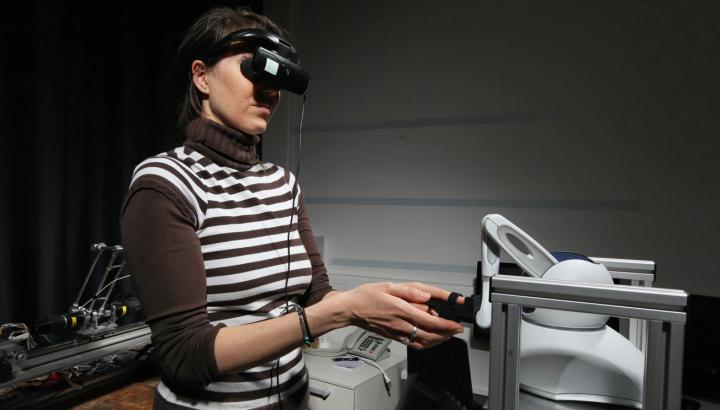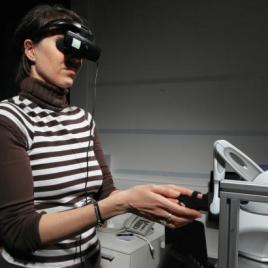
A volunteer holds a robot devised to make her feel as though she’s reaching out in front of her and, at the same touching her own back. (Credit: Alain Herzog/EPFL)
A new study sheds light on the mechanisms underlying the “feeling of presence” phenomenon, where people feel like there is a presence with them in a room even though they are alone. Scientists usually attribute this feeling to medical conditions such epilepsy, stroke, migraine and tumors.
Researchers have now devised a robot capable of giving otherwise healthy people a “feeling of a presence” phenomenon by making them feel as though they were reaching out in front of them and touching their own backs. The brains of participants, unable to process the mixed-up signals, then generate an illusory experience that the felt touch was not caused by themselves, but by another person behind them.
The findings could help further our understanding of hallucinations and schizophrenia.
Original research paper published in Current Biology on November 6, 2014.
Names and affiliations of selected authors


